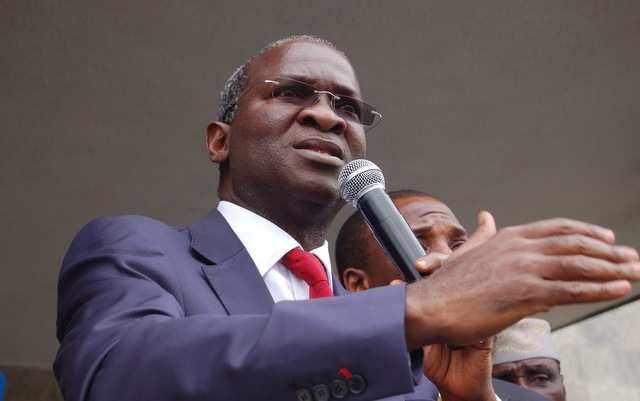Babatunde Fashola, minister of power, work and housing, says the activities of the Niger Delta Avengers (NDA) are the major threat to the nation’s quest to stabilize electricity supply in the country.
According to Fashola, the group since it started attacks on national assets from February 14, to date has carried out destruction of 23 gas pipelines across the Niger Delta states.
Speaking with journalists on the sideline of the sixth monthly meeting of operators in the power sector, which held in Kano, Monday, Fashola said the activities of the group were crippling the electricity supply.
“Let me say first time that the first major pipeline vandalized happened in Forcados on the 14th of February. Before, as at the 2nd of February, we were generating 5000 megawatts. When that pipeline was vandalized on the 14th of February, electricity generation dropped to 3000 megawatts.
“Since then to the 2nd of June, there have been 14 attacks on oil pipelines; and so, as a result of that, the 23 gas pipelines that we have are not getting enough gas to fire their turbines. So, we are gradually and entirely dependent now on the hydro-power, which is coming from the Kainji.
“So, the impact is quite significant; but I can assure you that it is temporary, and we are trying our best to restore the damaged pipelines. But more importantly, we are reviving our energy resources,” Fashola said.
The minister revealed that his ministry and other stakeholders were doing everything possible to ensure that the impacts of the activities were minimized.
“If you remember the last time I spoke to the press, I talked about the energy mix. You know, Nigeria is lucky; we can generate power from hydro, solar, coal and gas. So, the energy mix has become more important now because of the risk in single reliance on gas towards our energy security.
“Now, building new power plants take nothing less than 18 to 24 months. So, as we are going forward, we will be using more coal, and more hydro, as well as solar, so that in the medium time, Nigeria will not be over-dependent on gas, that is what we are doing. So, that is why I say this is temporary.
“In the interim, we are working on to improve our capacity to transmit. I think by the end of August, when the impact on the project in the transmission begins to be felt, we should be able to improve power in Calabar, Ekot-Ekpeni, and from there evacuate some more power,” he said.







